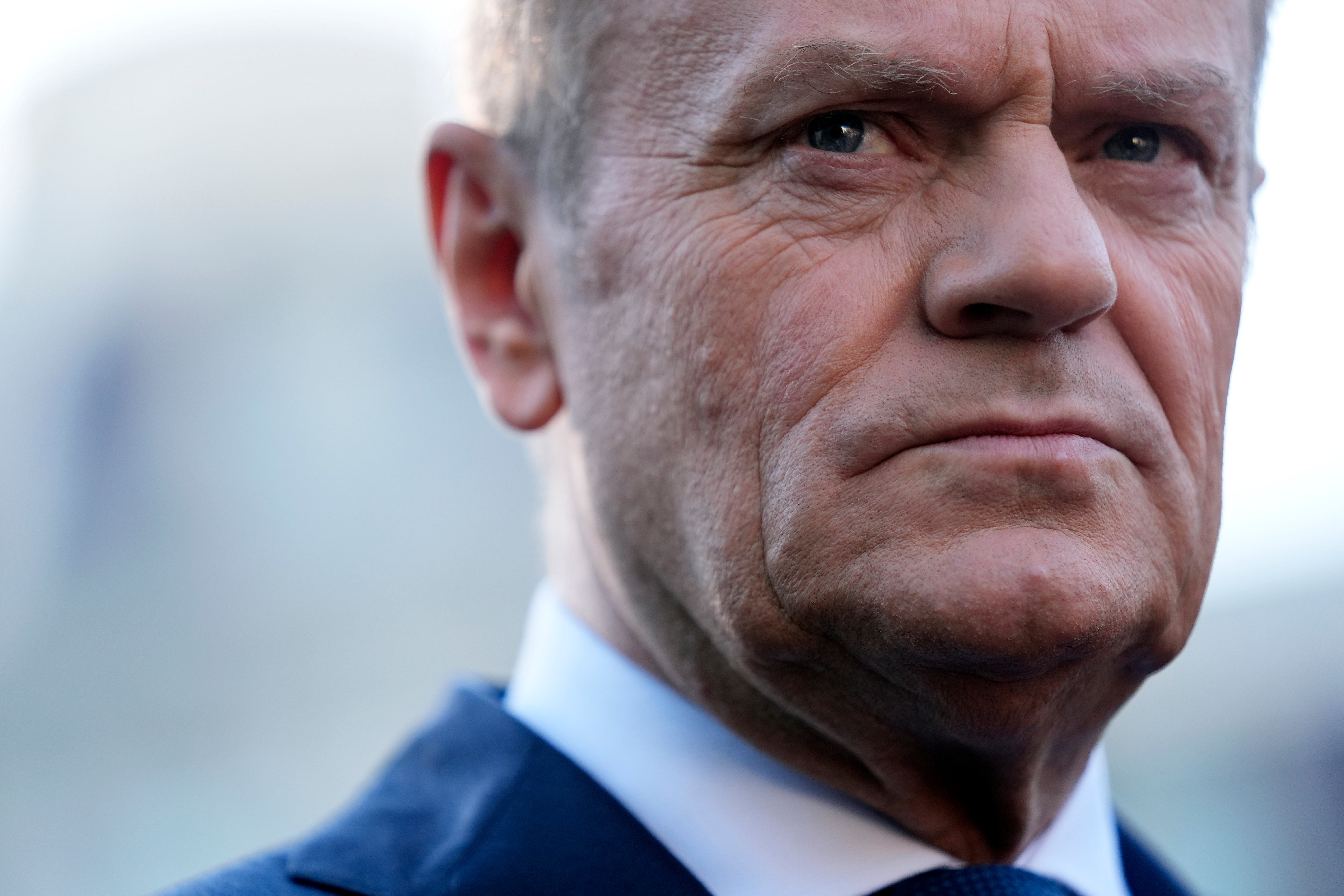Poland arrests sabotage suspects and warns of potential hostile acts by Russia
Polish Prime Minister Donald Tusk says three people recently have been arrested on suspicion of links to foreign-sponsored sabotage

Polish Prime Minister Donald Tusk said Tuesday that three people were recently arrested on suspicion of links to foreign-sponsored sabotage, adding to nine others already under arrest.
Tusk was speaking at a weekly news conference about what steps his government was taking to protect Poland against hostile activity, including incidents with suspected links to Russian intelligence services.
“Another three people were arrested” on Monday night, Tusk said, as he praised the efficiency of Poland's national security services. That brings the number of those under arrest to 12.
On Monday, Tusk said that nine people have been jailed on allegations of having “engaged themselves directly into acts of sabotage in Poland, on commission from Russian (intelligence) services” and described them as “hired people, sometimes from the criminal world, and nationals of Ukraine, Belarus and Poland.”
He described these acts as “beatings, arson and attempted arson.”
He said that also other nations in the region, especially Lithuania and Latvia, were threatened by sabotage and provocation.
The two countries, along with Estonia, are in the Baltics, a region that neighbors Russia. The three Baltic states were once part of the Soviet Union, while Poland was a satellite state of the USSR before the 1990s. Moscow still regards the area as within its sphere of interests.
However, Poland and the Baltic countries all support Ukraine in its efforts to repel Russia's full-scale invasion.
Arrests were made last week in Lithuania following a fire at an IKEA warehouse in Vilnius, which was believed to be arson. Tusk has said the suspects could also be linked to sabotage in Poland, while an attempted factory arson early this year in Wroclaw, in the southwest, was “without doubt” the doing of Russia’s secret services. That link was also being investigated in a recent fire of a major shopping mall in Warsaw.
Russian authorities didn’t immediately comment on the accusations, and they routinely deny such allegations.
Lithuanian President Gitanas Nauseda on Tuesday appealed for people to remain vigilant to acts of sabotage in the face of the current political circumstances.
“Unfortunately, we have information that such acts of sabotage can happen again," Nauseda told public radio LRT.
“When our opponents, our enemies (...) will try to destabilize our internal political situation, we have to do everything we can to prevent them from doing so,” he said.
___
Jan M. Olsen contributed to this report from Copenhagen, Denmark.
Bookmark popover
Removed from bookmarks